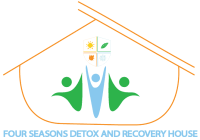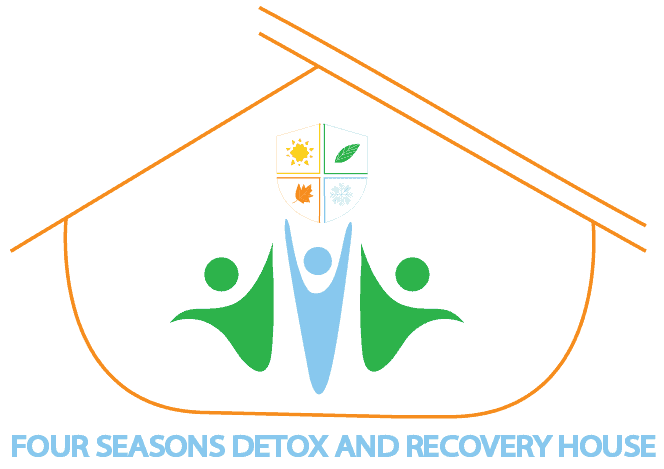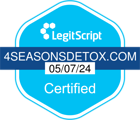One of the best decisions that you can ever make in your lifetime is taking charge of your addiction. And one of the hardest things you can ever go through is detoxing from a substance. This is because both physical and psychological symptoms can feel overwhelming at times. As the last traces of that substance leave your body, you experience feelings of withdrawal.
Everyone’s journey is different, and detox can look different for everyone. We’ll help you expect the process by giving you a good idea of what to expect.
What is Detox?
“Detox”, or detoxification, is the process of a toxin leaving your body. In this context, it refers to the process of an addictive toxin leaving the body, which can cause a variety of physiological symptoms. Detox allows the body to readjust to the absence of addictive substances and return to homeostasis.”
There are two ways to achieve detoxing:
– Through cold turkey (complete and sudden cessation)
– Tapering, in which the person gradually reduces the amount of the substance that they take.
Seek professional detox for safety, and medical experts will determine the method. Cold turkey withdrawal can be dangerous, especially from alcohol or benzo withdrawal.
Symptoms experienced during detoxification
Detox symptoms can vary, to some extent, from person to person, depending on their state of health and other factors. Besides that, the symptoms experienced during detox will vary based on the substance and the frequency and duration of use. Also, how long they were taking it and how much of it they were taking on a regular basis.
Still, there are some relatively universal symptoms that a person is more likely to have during the process, which include symptoms of both a psychological and physical nature.
Psychological Detox Symptoms
First, let’s cover psychological detox symptoms that are commonly reported among those going through drug or alcohol withdrawal.
· Anxiety: Most commonly reported psychological symptom of detox. The brain goes through a period of adjusting to not getting the satisfaction that it’s used to from the substance, and during this time, neurotransmitters can take time to reach homeostasis.
· Depression: Similarly, this is a very common symptom experienced during detox, as our brain chemicals can become extremely unbalanced as we go through withdrawal.
· Agitation: An expected symptom of detox, and this can show as having a short fuse, snapping at others, feeling uneasy and restless, and being more impatient than usual.
· Insomnia: Most people going through withdrawal experience a period of insomnia, as the brain has gotten used to the substance being in the system at the time during which a person went to bed.
· Hallucinations: This may occur while detoxing, especially if from alcohol or opioids. These are usually more present during the acute stage – in other words, the first few days after beginning the withdrawal process.
· Rage: Feelings of sudden rage can occur during withdrawal.
· Paranoia: Feelings of paranoia are also possible, as changes in the brain that occur during withdrawal can cause temporary changes in how we perceive the world around us.
· Brain Fog: It’s extremely common to experience brain fog, in which you may struggle to concentrate and feel a lack of alertness while you frequently “space out”.
Physical Detox Symptoms
Now, let’s move on to physical detox symptoms, which can be more varied depending on the actual substance that a person is withdrawing from.
· Fever: Can and often does occur during withdrawal, as the immune system struggles to cope with the actual withdrawal of the substance.
· Sweating: A common symptom that may be persistent or occur mainly at night (night sweats).
· Poor Temperature Regulation: Similarly, a person may struggle to regulate temperature during withdrawal, alternating between feeling hot and cold.
· Tremors: Most commonly associated with alcohol withdrawal, but can ultimately occur with withdrawal from any substance.
· Upset Stomach/Diarrhea: During withdrawal, the body throws every system out of homeostasis, and it can affect the digestive system as well. It’s common to experience both abdominal cramps and diarrhea as the substance leaves the body.
· Muscle Aches/Spasms: The immune system can go into overdrive during detox, and one way in which that can manifest is through muscle aches and spasms that feel a lot like the types of body aches a person experiences when they have the flu.
· Nausea/Vomiting: This could occur during detox as well, especially when withdrawing from alcohol.
· Headache: This may occur during detox and may feel like a dull, constant ache or acute pain.
· Changes in Energy: Periods of either intense fatigue or restlessness/hyperactivity can take place while the body readjusts following withdrawal from an addictive substance. This can also manifest in changes in sleep patterns.
· Seizures: People most commonly associate these symptoms with withdrawal from alcohol and benzodiazepines when attempting the cold turkey method. Hence, why detoxing from these substances should only be done under the guidance of a professional who will help you taper off safely.
How Long Do Detox Symptoms Last?
Unfortunately, we can’t offer a specific answer to exactly how long detox symptoms last. What we can say is that, in general, withdrawal symptoms generally begin within 24 hours and peak during the first 72 hours. Withdrawal duration varies based on the withdrawal method, addiction severity, substance quantity, and individual readjustment.
Managing Detox Symptoms in the Workplace
Experiencing detox is difficult enough to do when we’re on our own. But, if you’re using an outpatient method and still going to work every day, it can be an incredible challenge. So, let’s talk about managing detox symptoms at work.
First, plan ahead. If private detox requires several days off work, we understand that it may not be possible for everyone. Clear your schedule after work to rest if you have to go to work.
If possible, inform your supervisor of your situation for support and understanding.
Plus, make sure that you’re managing your symptoms using safe and healthy methods. For instance, stay hydrated and consider taking anti-inflammatory medications to manage some potential symptoms, like body aches or fever.
Conclusion
Overall, detoxing is a necessary evil on the road to recovery. We advise against doing it alone and instead recommend seeking guidance from professionals. At 4 Seasons Detox our medical team at 4 Seasons Detox can safely guide you through the challenging withdrawal process.






